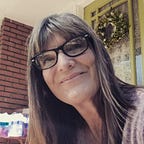Escaping the Escape
No one likes being uncomfortable, and I’m no exception.
As a kid in elementary school, I played up mild pain and discomfort to get out of class, interested in escaping the awkwardness of sitting all day long in a classroom desk. I would also do anything to avoid constantly being reminded that I had little or no understanding of what was being taught in certain classes, like geometry, or science.
Later, the pain of endometriosis scared me, becoming my ticket to the world of prescription meds. Yes, it was awesome that I could escape the twisting cramps that happened once or twice a month, but I noticed that if I spread the pills out, made them last, I could use them to vacate unpleasant experiences…to escape moments in which I felt empty, or worse, riddled with anxiety.
To further solidify my long-term relationship with pain, over the course of a couple of decades, I was rear-ended four times in vehicles that were ultimately totaled, serious whiplash producing accidents that initiated a process of degeneration in my cervical spine. Headaches and nerve pain became a part of life in my thirties and although my situation has definitely improved due to lifestyle changes, I’m not going to lie; some days are still tough.
Headaches and neck pain due to these accidents introduced me to routine use of prescription meds; eventually, that pain would become my teacher.
It could be so much worse. I know that some people live through unimaginable physical pain and illness, and I don’t begin to understand how.
My own nephew, Ryan Corbin, suffered a terrible fall through a rooftop skylight, plummeting four stories down a concrete stairwell. He survived a traumatic brain injury that has brought terrible pain and difficulty into his life, pain that he endures and works indescribably hard to overcome every day.
My sister Lindy, Ryan’s mom, and her family have graciously worked alongside Ryan, tirelessly investing in not only his quality of life, but also into those beyond their own inner circle. The Corbin/Michaelis family has created Ryan’s Reach, a non-profit designed to reach out to other families who care for loved ones with TBI, offering a respite care facility that these families might not be able to participate in without them. I honor the work they do to survive, to thrive, and to walk courageously together with other families who are doing the same.
My struggles aren’t in the same universe…not even worthy of mention by comparison.
But my difficulties may have an origin more connected to emotional pain and debilitating anxiety, creating a condition in which physical pain would become a necessary component. The pain was real, but it was complicated and enhanced by the use of medication that not only made the pain worse…it also left me shadow-boxing an opponent I couldn’t beat on my own.
I realized I would need to escape the escape, and this would require loosening my grip not only on the medications I had been given so freely, but also on my attachment to pain, the pain with which I had become identified. What would I be without it? How would I function?
After medics ruled out pathology, of course, a psychiatrist once told me it was good to pay attention to what’s happening in my body, “but,” he added, “try not to catastrophize.”
How did he know that was my MO?
Maybe my secret wasn’t really a secret, and eventually I realized, although not until I had closed the door to using chemicals to vacate my experience, I had focused on the pain partly because doing so had become a habit, and partly because I needed it to continue my current system of avoidance.
I needed to come up with a new way of conceptualizing, accepting, and addressing the pain I had taught myself was a fate worse than death.
I needed to quit running from it. To learn from it.
I found these words, drenched with loss, scribbled into a journal, just one week into my sobriety:
I had an epiphany that takes the nobility out of my suffering. Pain in and of itself isn’t holy. It doesn’t connect me to God like magic, and it isn’t some sadistic, sacred, stigmata style revelation, or a soul-washing loofah, sloughing off impurity. It’s the fragility of pain, the weakness in it, that brings me to my knees. It’s the powerlessness that simplifies my prayer to one word: help.
Admittedly, the pain I was experiencing that day had more to do with the absence of the pharmaceutical comfort to which I had previously been accustomed. I was grieving, acknowledging the loss of the meds and the pleasant, relaxed way they could make me feel. I was also experiencing some measure of physical withdrawal, Mu receptors shouting demands, or simply voicing panic.
One week into treatment, raw and broken in that moment, I was able to glean some lessons, just for me.
Pain isn’t spiritual currency.
I think I believed my suffering was earning some kind of karmatic points, that it made me somehow more spiritual. The thing is, healing is better.
It doesn’t justify entitlement.
You don’t get to be an asshole just because you’re hurting, and in most cases, a sense of entitlement makes life harder, not easier.
It doesn’t trump logic.
My journey through pain created for me an opportunity, a cracked door, through which, should I choose to move through it willingly, I could tackle not only the pain, but also, my compulsion to avoid it.
I would still have to choose, and I would still have to reach out and say the word. Help.
